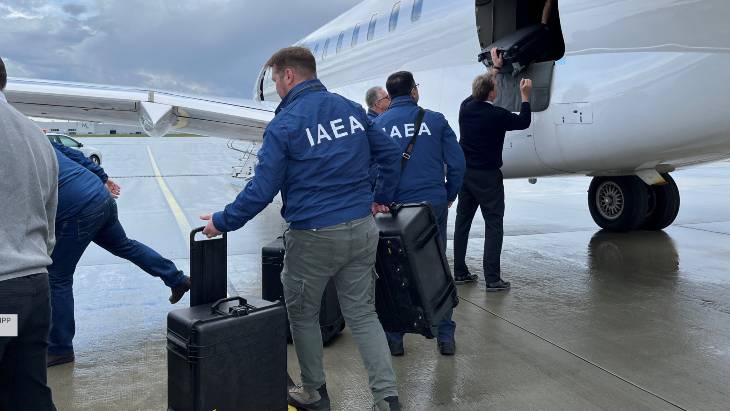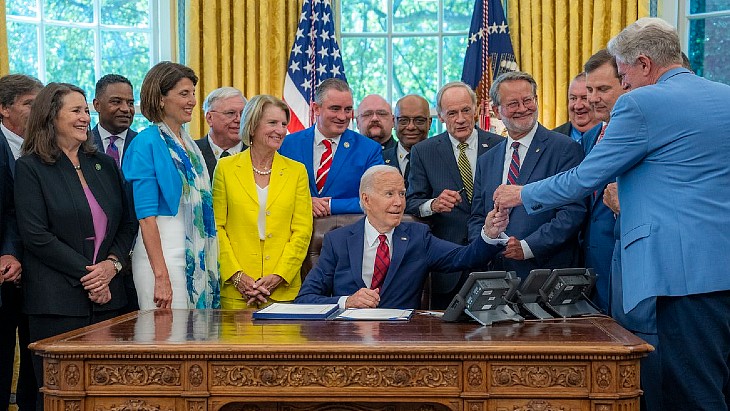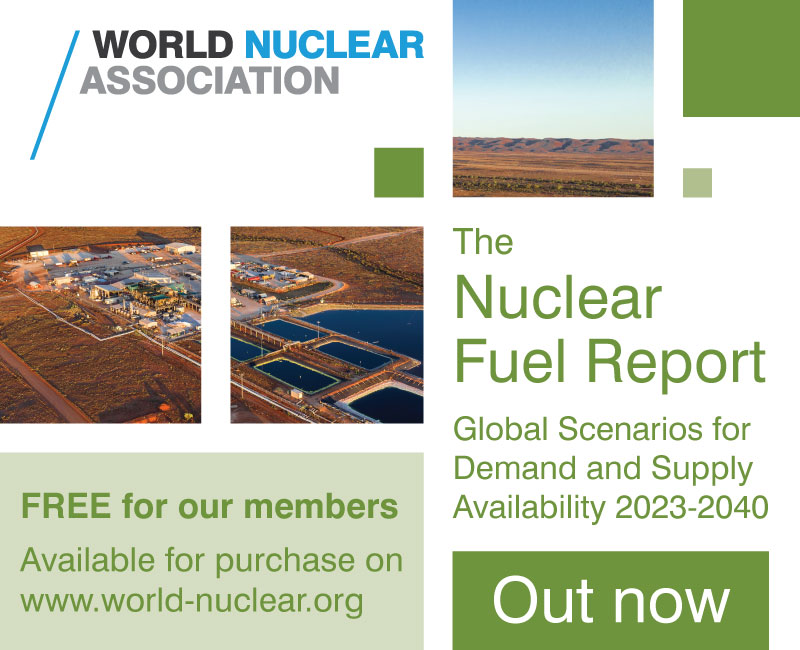Grossi says Zaporizhzhia mission ‘an obligation’ for Ukraine and IAEA

In a speech to the IAEA board, Rafael Mariano Grossi said: "This mission is not a matter of wanting or wishing, it is an obligation on the side of Ukraine and on the side of the IAEA. The IAEA will go to Zaporizhzhia nuclear power plant (NPP) under the legally binding safeguards agreement that Ukraine has with the IAEA.
"The current situation is untenable. Every day it continues; every day that vital maintenance work is delayed; every day that supply chain interruptions cause a break in the delivery of vital equipment; every day the decision-making ability of Ukrainian staff is compromised; every day the independent work and assessments of Ukraine's regulator are undermined; the risk of an accident or a security breach increases."
He said he had "repeatedly expressed my grave concern at the extremely stressful and challenging working conditions under which Ukrainian management and staff are operating the plant" adding that "the current situation is untenable".
Grossi said that the IAEA had carried out all its time-critical safeguards verification activities in Ukraine, apart from at Zaporizhzhia and "based on our evaluations conducted so far, I can confidently state that we have not found any indiciation of the diversion of declared nuclear material or any indication that would give rise to a proliferation concern".
He added: "At Zaporizhzhia we have reached the point where the presence of inspectors is essential. Though our safeguards systems are designed for data to be stored locally even when they are not being transmitted, the ongoing break in data reaching the IAEA is insupportable. Without the data, and without the in-person inspections that must occur in regular intervals, the IAEA cannot assure the nuclear material at Zaporizhzhia NPP is safeguarded."
The logitstics of an IAEA mission to Zaporizhzhia have been impossible to agree so far because the Ukrainian nuclear power plant is currently operated by its Ukrainian staff, but under the control of Russian military forces. Grossi has said before that while both countries agree on the need for inspectors to visit, they do not want it to happen under the other's authority.
Ukraine's nuclear power plant operator Energoatom questions how the mission would get to the power plant, saying "nobody from Ukraine invited them there, first of all for security reasons" and says that the "only way to expedite the visit of IAEA experts" is if the IAEA's call for the withdrawal of Russian troops and weapons from plant was heeded, as happened at Chernobyl. It was the same message as that from the State Nuclear Regulatory Inspectorate of Ukraine last week, when it said "the proposal to conduct an IAEA mission is unacceptable for Ukraine until the deoccupation of the Zaporizhzhia industrial site and the city of Energodar".
Energoatom added, on Thursday, that, otherwise, such a mission to the plant now would "legitimise the occupation of the power plant … in the eyes of the world community".
Zaporizhzhia, Europe's largest nuclear power plant, has been under the control of Russian military forces since 4 March. Chernobyl was occupied by Russian forces from 24 February until they withdrew at the end of March. According to Energoatom's daily update, all four of the country's nuclear power plants continue to work within safe limits.



_49215.jpg)









